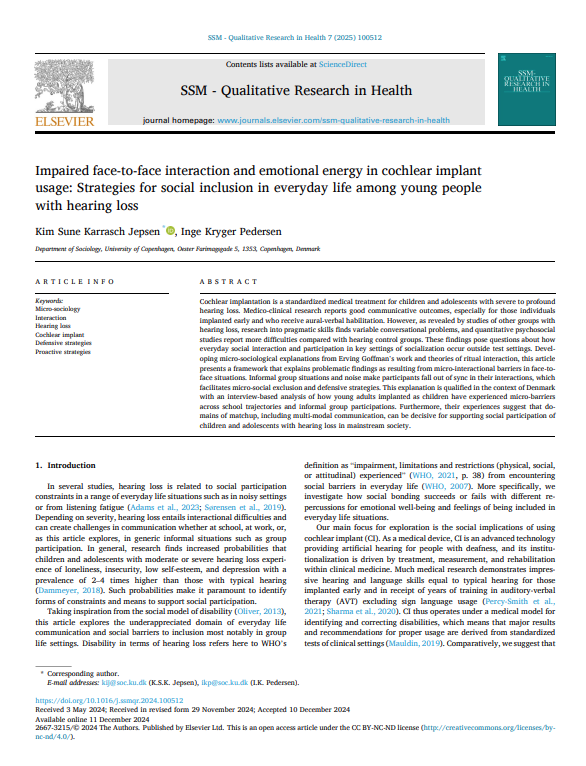Impaired face-to-face interaction and emotional energy in cochlear implant usage

Title:
Impaired face-to-face interaction and emotional energy in cochlear implant usage: Strategies for social inclusion in everyday life among young people with hearing loss
Abstract:
Cochlear implantation is a standardized medical treatment for children and adolescents with severe to profound hearing loss. Medico-clinical research reports good communicative outcomes, especially for those individuals implanted early and who receive aural-verbal habilitation. However, as revealed by studies of other groups with hearing loss, research into pragmatic skills finds variable conversational problems, and quantitative psychosocial studies report more difficulties compared with hearing control groups.
These findings pose questions about how everyday social interaction and participation in key settings of socialization occur outside test settings. Developing micro-sociological explanations from Erving Goffman’s work and theories of ritual interaction, this article presents a framework that explains problematic findings as resulting from micro-interactional barriers in face-to[1]face situations. Informal group situations and noise make participants fall out of sync in their interactions, which facilitates micro-social exclusion and defensive strategies.
This explanation is qualified in the context of Denmark with an interview-based analysis of how young adults implanted as children have experienced micro-barriers across school trajectories and informal group participations. Furthermore, their experiences suggest that do mains of matchup, including multi-modal communication, can be decisive for supporting social participation of children and adolescents with hearing loss in mainstream society.
